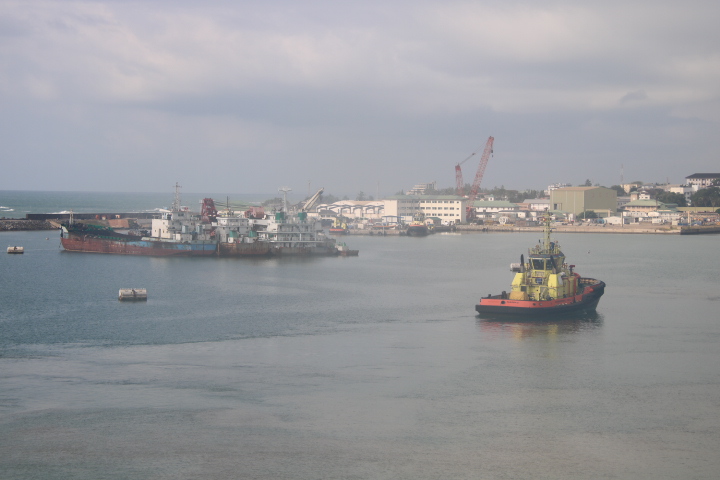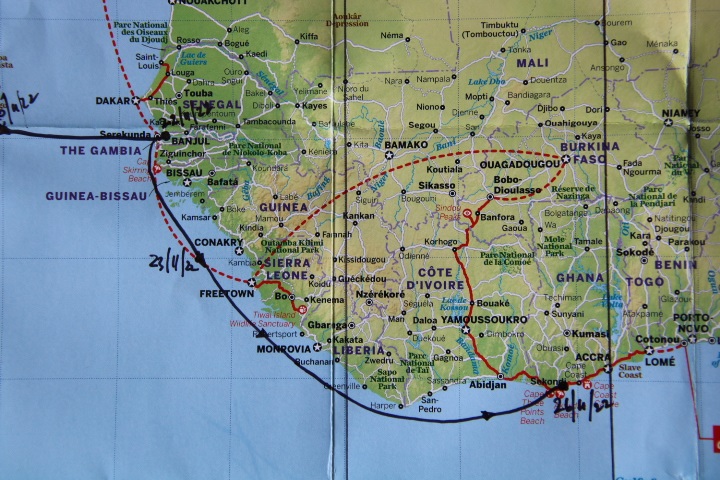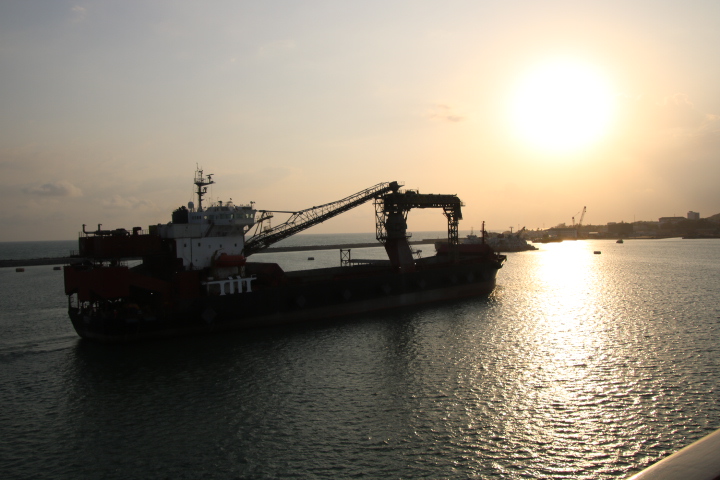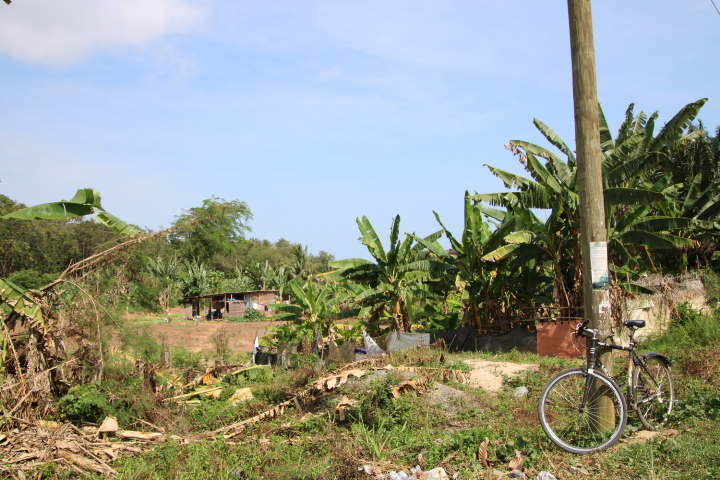By breakfast we were docked in Takoradi. It was very humid and hot, in fact, the lenses of the camera misted over because we are closer to the Equator today. This is the biggest port so far with container ships and bulk carriers being handled and smaller bulk carriers feeding the giant ships with minerals processed here and loaded at sea.


Sekondi – Takoradi are twin cities, the regions largest and the country’s major industrial and commercial centre. Timber, processed cocoa, plywood, bauxite, crude oil and ship building are important here.


Our tour would have started in a native forest just above the harbour, but human interventions of various kinds, have scared away the monkeys. However, with a burgeoning tourist industry one hopes that measures will be taken to encourage the animals and birdlife back to Monkey Hill.


Sekondi is a mixture of traditional Ghanian homes and markets within a decaying colonial town centre. Buildings from the turn of the 20th century to the 1950s are roofless with vegetation taking over but on the ground floor are shops and market stalls. Later we passed the Market Circle – essentially several markets each specialising in a product, such as meat, fish, shoes, clothing. The market was outdoors and in a central market hall. This is under reconstruction and not before time because our “Lonely Planet” guidebook’s description actually issued a health warning to visitors!
During WW2, RAF Takoradi was an important staging point for British aircraft destined for Egypt. Spitfires were shipped in crates from England to the base (remains are visible today) to be assembled and flown to Egypt and Libya via Nigeria and Sudan for the Desert Campaign. The South African Air Force had a flying boat base here in the fight against the U-boats in the Atlantic. To end the tour, we witnessed a cultural show (dancing and music) where the youngest of the troupe stole the show!



A little before 6:00 p.m. we slipped our moorings and departed for Togo. The sunset at 6:00 p.m. and the sunrise at 6:00 a.m. is now the norm for the next few days in equatorial climes.

